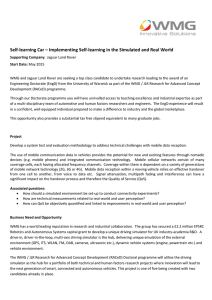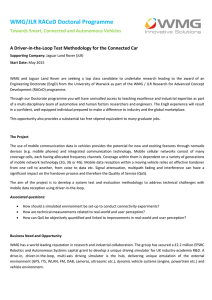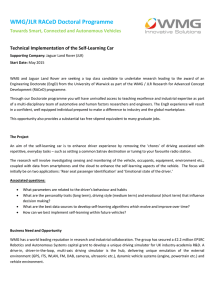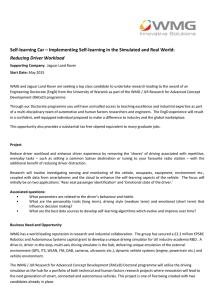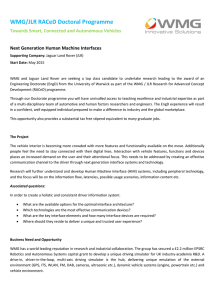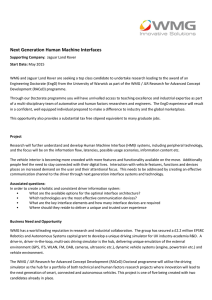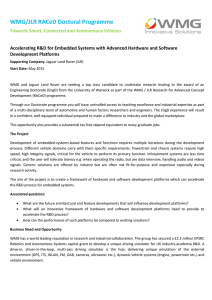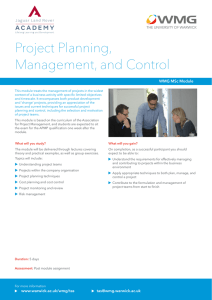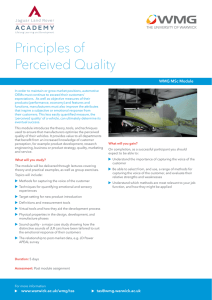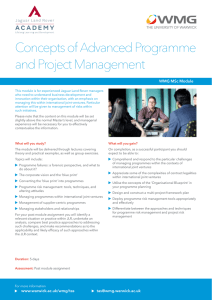WMG/JLR RACeD Doctoral Programme Towards Smart, Connected and Autonomous Vehicles
advertisement
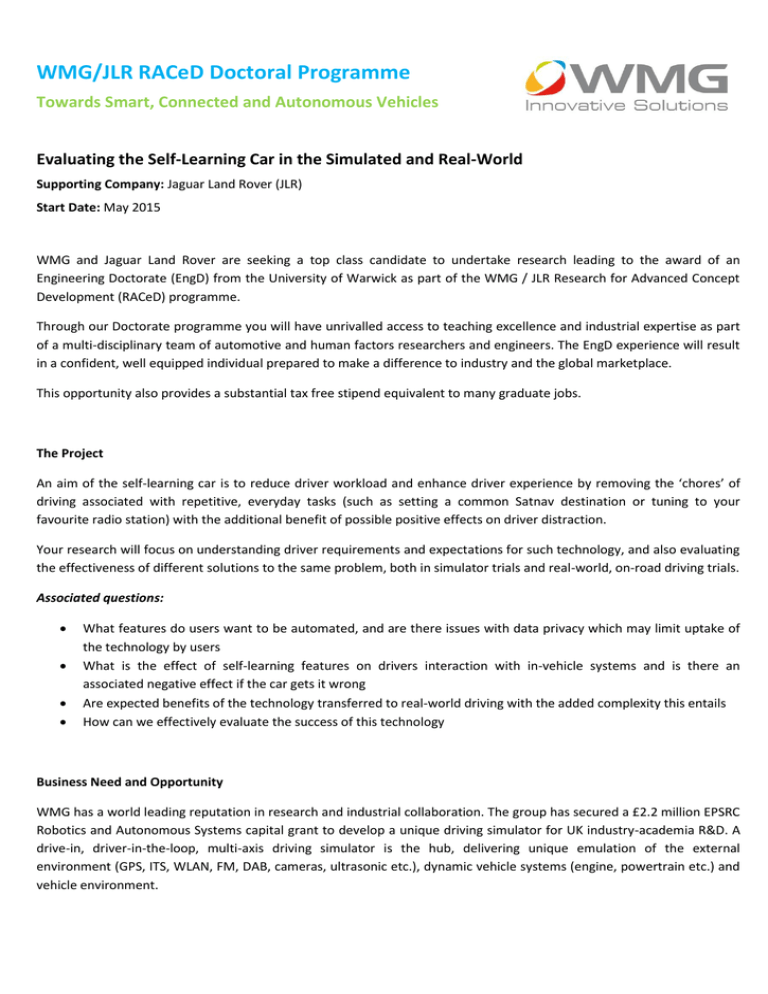
WMG/JLR RACeD Doctoral Programme Towards Smart, Connected and Autonomous Vehicles Evaluating the Self-Learning Car in the Simulated and Real-World Supporting Company: Jaguar Land Rover (JLR) Start Date: May 2015 WMG and Jaguar Land Rover are seeking a top class candidate to undertake research leading to the award of an Engineering Doctorate (EngD) from the University of Warwick as part of the WMG / JLR Research for Advanced Concept Development (RACeD) programme. Through our Doctorate programme you will have unrivalled access to teaching excellence and industrial expertise as part of a multi-disciplinary team of automotive and human factors researchers and engineers. The EngD experience will result in a confident, well equipped individual prepared to make a difference to industry and the global marketplace. This opportunity also provides a substantial tax free stipend equivalent to many graduate jobs. The Project An aim of the self-learning car is to reduce driver workload and enhance driver experience by removing the ‘chores’ of driving associated with repetitive, everyday tasks (such as setting a common Satnav destination or tuning to your favourite radio station) with the additional benefit of possible positive effects on driver distraction. Your research will focus on understanding driver requirements and expectations for such technology, and also evaluating the effectiveness of different solutions to the same problem, both in simulator trials and real-world, on-road driving trials. Associated questions: What features do users want to be automated, and are there issues with data privacy which may limit uptake of the technology by users What is the effect of self-learning features on drivers interaction with in-vehicle systems and is there an associated negative effect if the car gets it wrong Are expected benefits of the technology transferred to real-world driving with the added complexity this entails How can we effectively evaluate the success of this technology Business Need and Opportunity WMG has a world leading reputation in research and industrial collaboration. The group has secured a £2.2 million EPSRC Robotics and Autonomous Systems capital grant to develop a unique driving simulator for UK industry-academia R&D. A drive-in, driver-in-the-loop, multi-axis driving simulator is the hub, delivering unique emulation of the external environment (GPS, ITS, WLAN, FM, DAB, cameras, ultrasonic etc.), dynamic vehicle systems (engine, powertrain etc.) and vehicle environment. The WMG / JLR Research for Advanced Concept Development (RACeD) Doctoral programme will utilise the driving simulator as the hub for a portfolio of both technical and human factors research projects where innovation will lead to the next generation of smart, connected and autonomous vehicles. This project is one of five being created with two candidates already in place. Entry Requirements Qualifications Applicants must be UK/EU residents and should have a 1st or 2.1 degree in Human Factors, psychology or other related science/engineering discipline. Personal Attributes: Innovative and lateral thinking Excellent analytical, reporting and communication skills Self-motivated, independent and team player Understanding of user behaviour, preference and future needs Experience with user testing, which may include driving simulator and real-world evaluations Genuine enthusiasm for human factors research and interactions with technology The Studentship Qualifying students receive an attractive enhanced stipend which could be tax and NI free depending on your personal circumstances. For 2015 this totals approximately £19,000 tax free per annum. The funding will also cover University tuition fees and all course fees as well as a travel allowance to attend courses. Apply Initial enquiries to Prof Paul Jennings (email: paul.jennings@warwick.ac.uk) To apply please complete our online enquiry form
